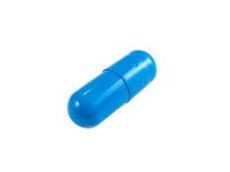Medical expert of the article
New publications
New pills will replace several types of heart medications
Last reviewed: 02.07.2025

All iLive content is medically reviewed or fact checked to ensure as much factual accuracy as possible.
We have strict sourcing guidelines and only link to reputable media sites, academic research institutions and, whenever possible, medically peer reviewed studies. Note that the numbers in parentheses ([1], [2], etc.) are clickable links to these studies.
If you feel that any of our content is inaccurate, out-of-date, or otherwise questionable, please select it and press Ctrl + Enter.

New daily pills will help save the lives of millions of people suffering from heart disease. At the George Institute, experts have developed a new drug that contains several active components (aspirin, statins, hypertension medication) that normalize cholesterol levels and blood pressure. As experts note, the new drug is inexpensive and helps prevent a number of serious diseases, such as stroke, myocardial infarction, etc. The new drug only needs to be taken once a day, which is convenient for many patients, since people with an increased risk of heart attacks are forced to take a large number of different drugs every day. Testing has shown that the new drug is more effective than standard methods of treating cardiovascular diseases. One pill can replace several drugs.
To test the new drug, scientists studied the health of more than three thousand heart patients from Australia, India, and Europe, who were given the new drug for a year. After examining the patients a year later, specialists noted an improvement in cholesterol and blood pressure, while compliance with the drug regimen increased by 43%.
Today, cardiovascular disease is the leading cause of death in the world. More than 17 million people die from heart attacks every year. A new drug that is easy to take will help reduce the number of deaths from heart disease. According to experts, by 2025, mortality rates could decrease by 25%.
Another research group has discovered a drug that works well against infectious microorganisms. The discovered agent resembles a drug against Mycobacterium tuberculosis.
Testing has shown that the SQ109 molecule also acts against other proteins that are vital for the normal functioning of parasites, bacteria, and fungi. At the same time, SQ109 is absolutely not dangerous to human health. In addition, SQ109 disrupts the bacterial membrane and stops the enzymes that synthesize menaquinone. All this leads to the fact that the permeability of pathogenic microorganisms increases, i.e. the cell remains defenseless and dies.
After the drug was discovered, scientists were able to develop several analogues of SQ109, which are similar in structure and functionality to SQ109, but are more effective and less toxic. The newly created molecules were studied on bacteria, fungi, parasites, and human cells. As a result, one of the new drugs showed several times higher effectiveness in the fight against tuberculosis mycobacteria than the original SQ109. Also among the analogues were drugs that effectively helped with the most severe forms of malaria.
The advantage of SQ109 is that resistance to it has not been recorded. This problem often arises during the development of anti-infective drugs and depends on how many types of pathogenic flora the drug can destroy. If the drug is aimed at destroying one type of bacteria, the risk of resistance increases.
In the near future, scientists plan to test SQ109 against sleeping sickness, Chagas disease, and leishmaniasis.


 [
[